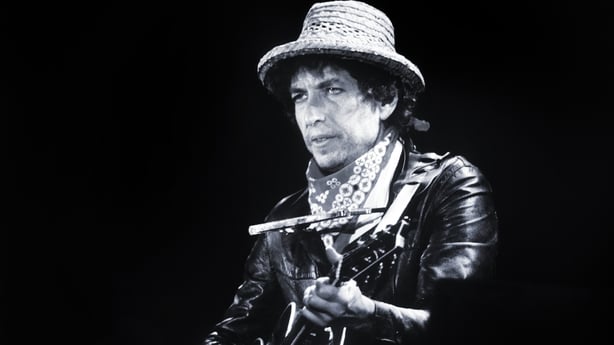"I'm seeing your world of people and things," Bob Dylan sings on Song to Woody. "Your paupers and peasants and princes and kings." It’s easy to forget that the man we’ve collectively forced into the category of an enigma was once so young, so disarmingly naïve.
In Hollywood’s latest biopic treatment, A Complete Unknown, you’d be forgiven for thinking that the artist came without any solidly-defined portrait of the young man. Timothée Chalamet’s treatment is all pre-packaged wisdom; a walking compendium of fortune cookie snippets like "If you can’t be beautiful, you have to be a freak," and "They want me singing Blowing in the Wind for the rest of my Goddamned life."
This is what we ask of our pop culture figureheads, after all; easily digestible narratives about how they came to play the hits, reminding us anew how cool it looks to smoke. The problem with Dylan is that he has always been a mass of walking contradictions. Pop’s first chameleon, he has been both protest singer and born-again corporate sell-out, folk musician, rock musician, country musician... and everything in between. In 1975, he even toured with the Rolling Thunder Revue as ringmaster in an honest-to-God traveling carnival.
In perhaps his most famous incarnation, he was a reluctant spokesperson for the 1960s counterculture; a persona he embodied—and arguably created for others—with his messy crop of tousled curls, black skinny jeans, RayBan sunglasses and an effortless repertoire of poetical allusion. It’s this Dylan that interests writers in particular, for it showed for perhaps the first time that high culture could be chic. That knowledge about French symbolism, Dada and surrealism could sit comfortably alongside rock’n’roll and politics-inflected youthful rebellion.

In A Complete Unknown, Dylan’s literary aspirations are nowhere to be found. The arduous process of producing, then condensing down an allegedly twenty-page piece of modernist "vomit" into the song we know today as Like a Rolling Stone is rendered simply as a young Chalamet rushing to find his acoustic guitar. There are zero references to the fact that Robert Allen Zimmerman took his stage name from Welsh poet Dylan Thomas.
There is no reference to the fact that between 1964 and 1965, Dylan wrote an entire book of experimental prose poetry called Tarantula or that the likes of Joyce’s Finnegan’s Wake, Herman Melville’s Moby Dick and Arthur Rimbaud’s A Season in Hell influenced his songwriting as much as Woody Guthrie and Little Richard. Finally, there is almost no explanation as to why a figure such as Dylan should be deserving of the 2016 Nobel Prize for Literature (though it does indulge in a pre-credits throwaway reference to the fact that he didn’t attend the awards ceremony).
Dylan deserves more than this, and it’s a shame that A Complete Unknown does him the disservice of being such an unambitious slog. Of failing to capture his importance as an artist, not only in terms of his work as a musician, but his strengths as a writer who changed the way we see.
A Complete Unknown is in cinemas now.
The views expressed here are those of the author and do not represent or reflect the views of RTÉ


